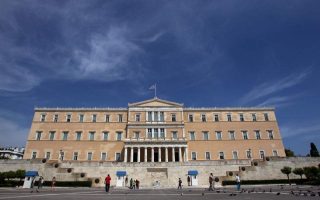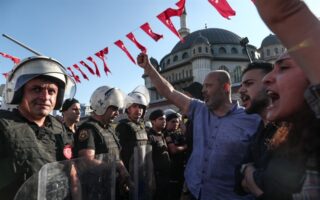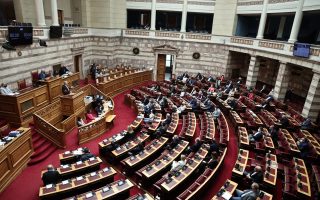An obsession with elections

At the end of 2014 things were pretty much as described by the vice-president of the former SYRIZA-Independent Greeks government coalition, Yannis Dragasakis, in his recent article “The truth about 2015” (in Efimerida ton Syntakton newspaper, published on July 9.): “The loan agreement in the second bailout, which ensured liquidity for the banks, had expired at the end of 2014 and had only been extended for two months, which means it was to expire at the end of February. In other words, as of March 2015, neither [public sector] salaries would be able to be paid normally nor banks to stay open. Therefore, the country was already on the brink – it didn’t get there because of the referendum [called by then prime minister Alexis Tsipras], as [PM Kyriakos] Mitsotakis falsely claims.”
I say “pretty much” because the truth is that the country had been on the brink since the middle of 2007, when, in the middle of the summer and under pressure from deadly wildfires, the conservative prime minister at the time, Kostas Karamanlis, announced early elections. But the 2015 referendum took the country a decisive step closer to the precipice. Fortunately, a belated consensus was achieved at the council of political leaders, two days after that ridiculous plebiscite.
It is true, however, that banks had run out of liquidity and an extension was granted simply to give Greece time to hold elections. It should be noted here that the European Central Bank is not a magic tree yielding cash. It lends money at a low interest rate knowing that it will get it back because governments have agreed on certain rules for the economy. It expects seriousness and sincerity.
So, given that Greece was heading for a fall on December 31, why was SYRIZA hellbent on holding snap elections since May of that year, which it finally extorted with the presidential election? Didn’t the leftist party know the bailout’s milestones? It should be noted that former conservative prime minister Antonis Samaras was also adamant about early elections in 2012, when the country was going bankrupt. In the end, Samaras managed to get his double ballots (national and local elections), with New Democracy securing 29.6% of the vote and – perhaps most importantly – SYRIZA becoming the main opposition.
All of this is not just history, because as we face many other crises today apart from an economic one, SYRIZA is still singing the same tune as it did in 2014. “Recourse to the people is required, which must be carried out in an orderly manner, in order to restore democratic order in the country,” Tsipras said on May 26, 2014. “The country can’t take anymore of you, Mr Mitsotakis. Three years is enough. Give us a democratic way out,” he said just the other day in Parliament, on July 6, 2022.





